Before I move on to the last child of Meyer Goldschmidt, his son Falk, I have two updates that relate to Meyer’s two other sons, Jacob Meier Goldschmidt and Selig Goldschmidt. Today’s involves descendants of Jacob Meier Goldschmidt.
Once again I have had the good fortune of connecting with a Goldschmidt fifth cousin, my cousin Greg. Greg is the great-grandson of Helmina Goldschmidt Rapp, the youngest child of Jacob Meier Goldschmidt. Greg’s grandfather was Helmina’s son Arthur Rapp, and his father was Gordon (born Gunther) Rapp.
Greg shared with me numerous photographs and documents, including his father’s diaries written during World War II when he was a teenager. Greg also put together a timeline of his family’s travels from Germany to Italy to England to Brazil and finally to the US, all between the years of 1934 to 1941 or from when his father was eight years old until he was sixteen. In other words, the Rapp family lived in five countries in the span of seven years.
Although I have already written most of the skeleton of the Rapp family story in my earlier post, after reviewing the materials Greg shared and speaking with him, I want to supplement that post because I can now better describe the family’s life in Frankfurt and the journey that finally brought them to the US in 1941.
Arthur Rapp and his wife Alice Kahn were married in Frankfurt on May 6, 1921. This photograph might be their wedding photograph, but Greg wasn’t certain.
It was Arthur’s second marriage, and he had a daughter Rita from that first marriage who was born in 1908. Then Arthur and Alice had two sons, Helmut, born in 1923, and Gunther, born in 1925. These photographs of the family in the years before they left Germany in March 1934 illustrate their comfortable lifestyle with family vacations to the shore and to the mountains. I don’t have exact dates for these photographs but can only estimate from the presumed ages of Helmut and Gunther.
The two brothers were very close:1
They went to the mountains:
The beach:
And skiing and ice skating:
During these years Arthur was working for the H. Fuld Telephone company as a director and salesman. H. Fuld was started by Arthur’s first cousin Harry Fuld, about whom I wrote in this blog post.
Gunther Rapp started school in Frankfurt on April 6, 1932, when he was six, and spent two years in school in Frankfurt, ending on February 23, 1934, as seen on this report card his son Greg shared with me. His first year was at the Holzhausen School, and his second year was at the Philanthropin School.
Then, one year after Hitler had become Chancellor of Germany, the Rapp family left their comfortable life in Frankfurt and moved to Milan, Italy, where on March 2, 1934, Gunther was enrolled in a Swiss school in Milan, as seen in this report card:
The family lived in Milan until about December 1937. Greg wasn’t sure what his grandfather was doing at that time but speculated that since the H. Fuld Telephone Company was international, he was continuing to work for that company during this time.
I think these photographs were probably taken during the time they were in Italy from March 1934 until December 1937, or from the time Gunther was eight until he was twelve; on the other hand, they might have been taken in England, their next home:
Then the family moved again, this time to London. Gunther was now twelve, his brother Helmut was fourteen. Having learned Italian and studied French while in Milan, the boys now had to learn a fourth language, English. When he started school in England in January 1938 at the Normandie Preparatory School in Bexhill-on-the-Sea, Gunther knew only three words: please, thank you, and yes.2
Gunther’s report card a year later in December 1938 showed just how much progress he had made in English and in school in general (despite the comment about how he was doing in Scripture). Perhaps most telling is the comment at the bottom: “He is losing his shyness and beginning to talk more readily.”
Gunther celebrated becoming a bar mitzvah that December as well, delivering his bar mitzvah speech in German, which he later translated to English. His speech was primarily an expression of gratitude to his parents and his grandmother for the way they instilled joy and love into all their lives. A note at the bottom contained Gunther’s admission (possibly added years later) that the rabbi wrote most of his speech (something that may be true for many bar/bat mitzvah students).
And then nine months later on September 1, 1939, World War II started. The headmaster of Gunther’s school wrote to his parents, trying to persuade them to keep Gunther at the school.
Two things are of particular interest: first, the fact that the school had built a trench so that the students never had to go outside. And secondly, the letter assured Gunther’s parents that the fact that he was German-born would not be an issue, noting that, “We all know that you have exactly the same feelings as an Englishman about the tyrant in Germany….”
But the Normandale School was on the south coast of England on the English Channel, and the Rapps decided that boys would be safer elsewhere. Gunther and his brother Helmut were sent to High Bullen Farm in Lynton, Ilkerton-Devon, on the west coast of England. The farm had no electricity, only kerosene lamps, and water had to be pumped by hand. The Rapp brothers helped on the farm—milking cows, hunting rabbits, and watched the slaughtering of a pig.3
Starting in January 1940, Gunther began to keep a diary. The three months of the first year of his diaries are, interestingly, written in German, not English; many of the entries simply say he went to school or he was sick in bed or he played football (soccer, I assume) or hockey or golf. In April 1940, he switched to English, which I found noteworthy. I wonder whether England being at war against Germany had anything to do with that or whether he just finally felt fluent enough in English to use it. There is no mention of the war, however, until May 8, 1940, when he included a small news clipping about the war after entering his activities for that day: “Go to school. Play cricket. Became a prefect.”
But his parents were already looking to get out of England:
From then on, Gunther made occasional entries about the progress of the war or entered news clippings, but mostly he reported on going to school and engaging in sports. In June 1940, he and Helmut left Devon and returned to the family home in Stanmore where their parents had built a house with a bomb shelter in the backyard to keep them safe.4
On June 26, 1940, Gunther wrote the following brief entry: “Pa is interned at 10 o’clock. Mu [his mother, I assume] is very worried. Read. Mu goes to Consuls and tries to get a visa.” On Friday, August 2, 1940, Gunther wrote, “We get a ‘phone call that we will shortly get the visa.” On August 16, he spoke of men coming to pack and of an air raid warning. There are then several more references to air raid warnings, and on August 29, he noted that his diary had been checked by a censor as the family was preparing to leave England.
And then on September 6, 1940, he described their departure from England, commenting in part that “We are all very pleased. Pa came out of the internment camp.” They were headed to Sao Paulo, Brazil, Gunther’s fourth country in six years. He was not yet fifteen years old.
From his description of the trip from England to Brazil, you would think he was on a pleasure cruise with his diary entries repeatedly saying, “Lie on deck. Read and play,” with an occasional reference to learning Portuguese—his fifth language after German, Italian, French, and English.
The Rapp family’s time in Brazil was relatively short, and Gunther’s diary entries mostly refer to learning Portuguese, going to the museum, exploring Sao Paulo, and engaging in some project with marble blocks. He also commented on Helmut’s fascination with watches and clocks and his work at a clock repair store. Then in December he started school and commented, “I hardly understand anything the teachers say.” But that same week in December, 1940, Gunther wrote about going with his parents to the American consul to get a visa to travel to the US.
The 1941 diary began by noting that he was going to school each morning to learn Portuguese and taking typing lessons in the afternoon. But meanwhile the family was preparing to sail to the US. Helmut continued to repair watches. On his last day at the school in Brazil, January 31, 1941, Gunther wrote, “I’m glad I don’t have to go there any more because I didn’t like it there.” Overall, he seemed not to be the least bit sad when they left Brazil on February 5, 1941, and sailed to the United States.
On February 17, 1941, the ship arrived in New York harbor. Gunther wrote on that day:
“We are getting nearer our destination. On our left and our right, we can see strips of land, with a blanket of snow on it. Hardly visible through the fog is the imposing statue of liberty, which guards the entrance of the N. York harbor. … We step ashore at 330 and are welcomed at the quay by aunt Alice [Rapp, his father’s sister] and [her husband] Sally and one or two other friends. It’s snowing and terribly cold. …. We go with Uncle Sally and Mr. Drey to the Whitehall Hotel by U-ground, which isn’t as nice as in London [ed.: that is still true today]. I haven’t seen much of N.Y. yet, but from what I have seen, I think I’m going to like it.”
He in fact lived the rest of his life in the greater New York City area, moving only as far as New Jersey in the mid-1970s.
Gunther (who became Gordon in the US) continued to keep his diaries through 1945, and when I have time I hope to read through more of them. But for now I have told the part of the story I wanted to share—the story of a boy who left his homeland at eight for Italy, then at twelve moved to England, at fourteen left for Brazil, and finally in February 1941 when he was fifteen, moved to the United States, where he spent the rest of his life.
As I wrote in my earlier post about the Rapp family, both Gunther/Gordon and his brother Helmut/Harold lived long and successful and productive lives in the US—Harold rising from doing watch repairs to becoming the president of Bulova International, Gordon obtaining degrees from Cornell University and Purdue University and becoming a product and marketing manager with Corn Products Corporation.
From reading the diaries, looking at the photos, and reading the letters written about him by his teachers, it truly seems that Gunther Rapp’s bar mitzvah speech was truthful—even if the rabbi wrote much of it. Gunther seems to have always felt safe and secure with his parents and brother, well-loved and filled with joy, despite all the turmoil and changes going on in his external circumstances.
Thank you so much to my cousin Greg for sharing this incredible archive of photographs, diaries, and other documents. By doing so, he has brought his father to life for me and, I hope I have been able to honor the memory of this man whose boyhood was interrupted, but who never seemed to lose his joyfulness or his desire to succeed.








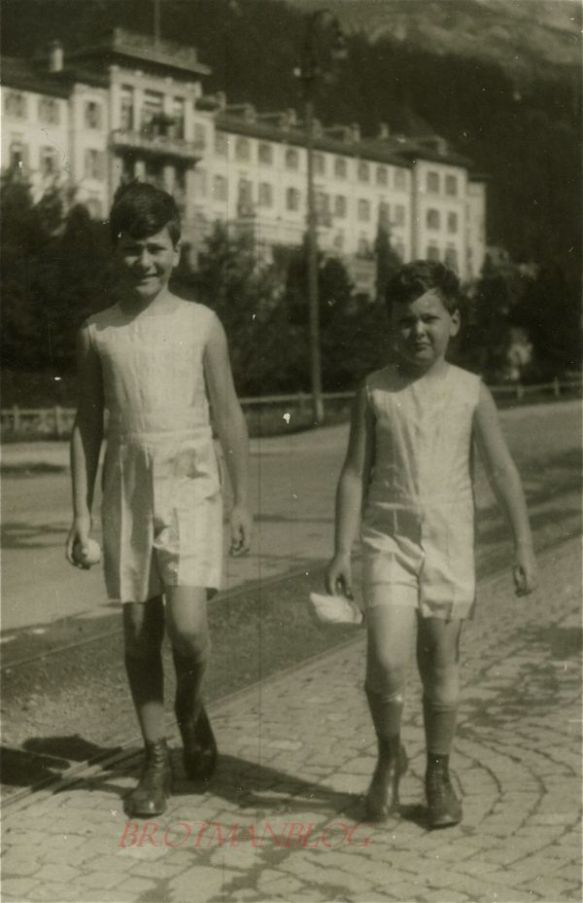



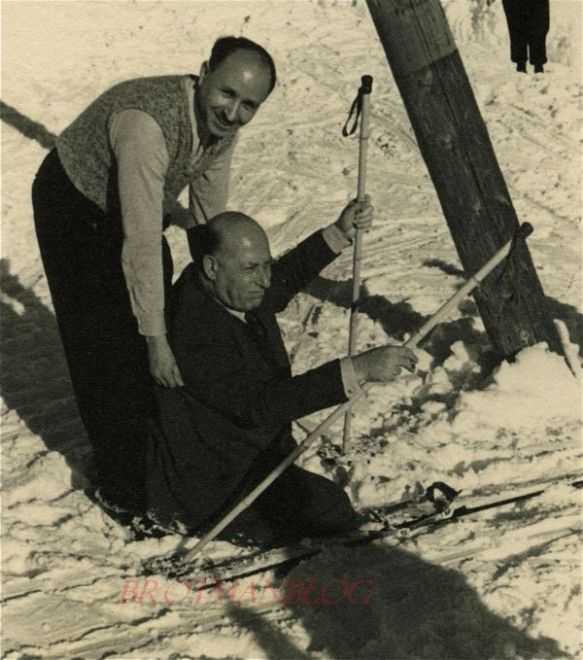




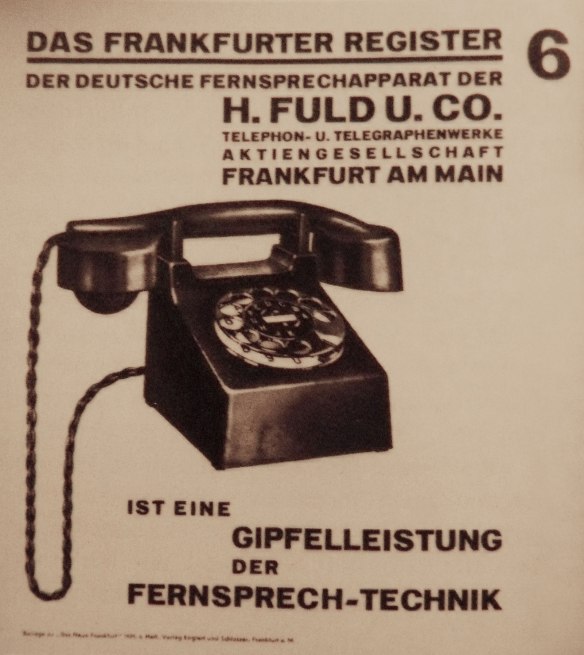



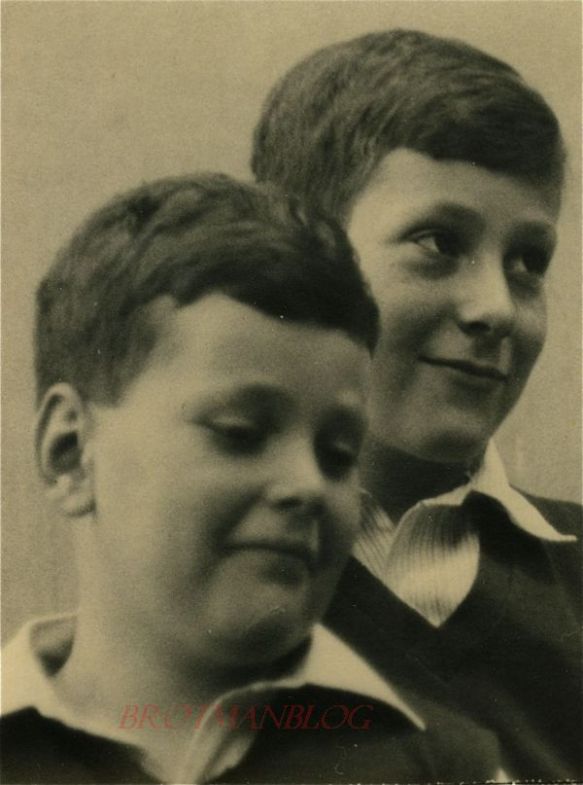






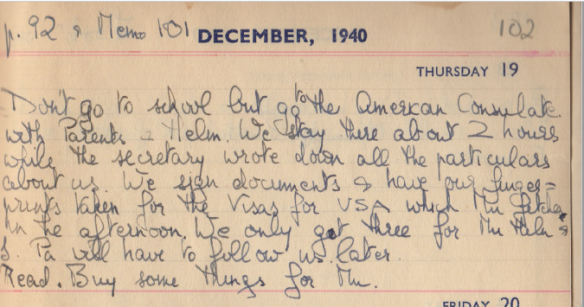
To have lived in five countries in the span of seven years is even more amazing when you consider that it was also on three continents! Children quickly pick up new languages at the age Gunther was but so many? The photos are wonderful – such a happy and loving family.
LikeLiked by 1 person
I know—I cannot begin to imagine what that was like! I lived in one house from 4 to 13 and then one other from 13-18 that was only 20 minutes away from the first one. And I’ve now lived as an adult in one place (two houses) since 1983! Yet Gunther somehow ended up so well-adjusted.
LikeLiked by 1 person
We moved 7 times by the time I was 17, crossing the Atlantic four times. That was easy compared to thinking (just thinking, no plans) about moving now as I’ve lived in the same house since 1980. We get set in our ways as adults. Children are more resilient especially when they have a family like Gunther’s.
LikeLiked by 1 person
Children are indeed far more resilient. Fortunately!
LikeLiked by 1 person
When was he at Cornell ?
LikeLike
Long before you were! I have to go look it up.
LikeLike
He might have overlapped with my parents, uncle or cousins…
LikeLike
From his Cornell transcript, it appears he graduated in 1949—from the Ag school.
LikeLike
Thank you for sharing this story of Gordon, our cousin. He was truly one of the most amazing people I have heard known.
We live in the same town as Greg and got to know Gordon during the last years of his life as he lived here as well for 15+ years.
I love reading these stories on your blog.
LikeLiked by 1 person
Thanks, Susan, and Greg remembers your dad and all of you with great fondness.
LikeLike
Great story of the incredible journey of the Rapp family, Amy! I like the photos very much. They reveal so much happiness and tender-loving care in spite of the dangers of travelling from country to country in their successful attempt to find a safe haven for the family. As a retired teacher and familiar with the European grading system, I am also impressed by Günter’s report card he received in Milan. Looking forward to your next post, Amy.
LikeLiked by 1 person
Thanks for that observation, Peter. I am not at all familiar with European grading systems or patterns. Thank you!
LikeLiked by 1 person
1 very good, 2 good, 3 fair, 4 satisfactory, 5 unsatisfactory, 6 fail Would you believe that my English grade on my graduation diploma was a 5? It was a tough school I attended in Germany.
LikeLiked by 1 person
Well, either they were really tough graders and you’ve proven them wrong. Or you’ve come a long way since then!
LikeLiked by 1 person
Both statements are true. It was a tough high school offering a nine-year program with Latin, English and French as compulsory subjects. Out of the hundred students entering the system only 25 graduated.
LikeLiked by 1 person
Wow. I assume you were one of the 25!
LikeLiked by 1 person
That is correct, Amy.
LikeLiked by 1 person
Of course!
LikeLiked by 1 person
An absolutely fabulous posting and big thank you to Greg for sharing the amazing wonderful photos and his branches story with you. You told it beautifully. The wedding photo with her shorter skirt and ‘scandalous’ legs in full view and her beautiful smile is priceless. There is so much movement in all the photo’s, Arthur and Alice stepping off the step in that wedding photo and I love the boardwalk with the wind captured in photo and the ice skating photo. My favorite ~ their kiss 🙂
LikeLiked by 1 person
I always look forward to your wonderful descriptions of details that I never bother to see! I love that kiss photograph also—so does Greg. He said it revealed a side of his grandparents he never would have imagined.
LikeLike
Was the half sister saved?
LikeLiked by 1 person
Yes—she was married already and came to the US in 1937. I wrote about her here: https://brotmanblog.com/2020/07/28/arthur-rapp-and-family-from-germany-to-england-to-brazil-to-new-york/
LikeLike
Hi Amy, the photo of the flapper style wedding dress that Alice wore was ooh-la-la with bell sleeves and her bouquet all big ,droopy and dramatic- I like the style! The photo captures her excitement.
But the headmaster’s letter from Bexhill prep school about Gunther’s education was so commanding, the family did well to relocate the children to rural Devon.
LikeLiked by 1 person
Thanks, Shirley! Are you familiar with either of those schools? Is Devon near where you live?
LikeLike
Hi Amy, no I’m not familiar with either of those schools but I know Devon as a holiday resort with beautiful beaches and meandering lanes and it would be quite relaxed there. We call Devon “the west country”. It’s the next county along from Cornwall (Doc Martin.)
Bexhill is a coastal resort a couple of hours out of London on the south coast. We’re based in The Midlands and not near to either.
LikeLiked by 1 person
Thanks, Shirley. I need to study my English geography!
LikeLike
Amy, this is the kind of detailed information that really brings experiences to life for the rest of us. Wow.
LikeLiked by 1 person
I am so grateful to Greg for sharing his father’s diaries and all the records and photographs. His father saved all that for a reason, and I hope I have helped serve his goal.
LikeLike
I, too, am in awe of the number of moves they made – moving is such a stressful event for my family which is why my parents lived in their home for 55 years and my grandmother lived in her home from the 1930’s until her death in 1982. The pictures are wonderful, although several of them took forever to open.
LikeLiked by 1 person
Wow. That’s incredible. The longest I’ve ever lived in one house is 25 years.
LikeLike
Congratulations! Your blog has been included in INTERESTING BLOGS in FRIDAY FOSSICKING at
https://thatmomentintime-crissouli.blogspot.com/2021/01/friday-fossicking-15th-jan-2021.html
Thank you, Chris
LikeLiked by 1 person
Thanks, Chris!
LikeLiked by 1 person
Pingback: Friday’s Family History Finds | Empty Branches on the Family Tree
Thank you!
LikeLike
That diary is a treasure! And how lovely that yet another branch of your family was able to escape the Holocaust.
My dad too saw several countries before he arrived in Canada…children endured so much during that period, yet seemed to adapt well.
LikeLiked by 1 person
Children are so resilient—fortunately, given what so many endured and continue to endure.
LikeLike